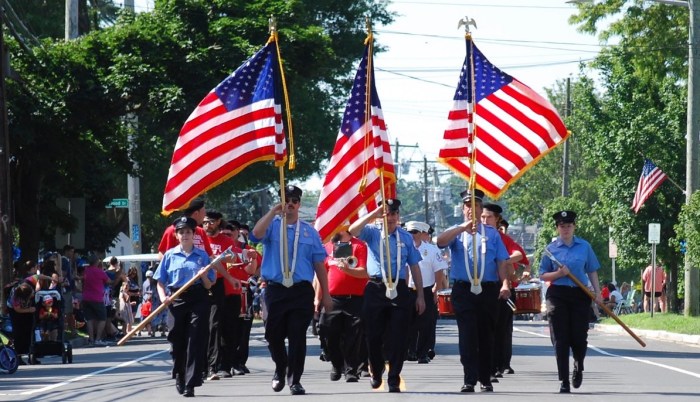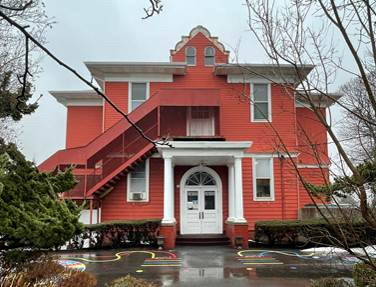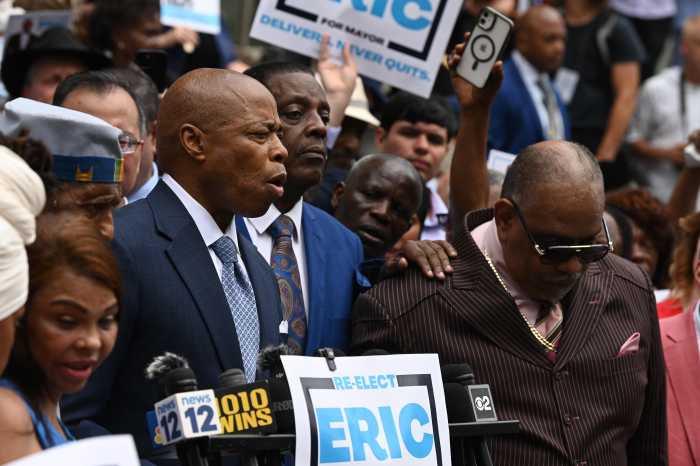A modest ranch-style house in the bedroom community of Wantagh played a key evidential role in former President Donald Trump’s company being convicted of tax fraud this week following a month-long trial.
Allen Weisselberg, the former chief financial officer for the Trump Organization, testified during the trial that he sold his home on Long Island and moved with his wife to a Manhattan residence paid for by the company — one of $1.7 million worth of perks he did not claim on his taxes. Weisselberg pleaded guilty in August to tax fraud in exchange for a comparatively light sentence of five months in jail — the average sentence for tax fraud is 17 months and he faced up to 15 years — plus his testimony against the company, which a Manhattan jury found guilty of tax fraud, conspiracy and falsifying business records for failing to properly file taxes on executive perks and bonuses for more than a decade.
“It was my own personal greed that led to this,” the 75-year-old accountant testified at one point during his three days on the stand last month, during which time he detailed how both he and the company benefited from the scheme to avoid paying taxes on company-paid perks for its executives. He testified that he hid the extras from his income by fudging payroll records to deduct their cost from his salary and issuing falsified W-2 forms, sparing the company from paying him more to cover the cost of the perks.
The verdict is a pivotal moment in one of the various investigations against Trump — who declared his 2024 Republican presidential candidacy mid-way through the trial — and his associates, but it is far from over. Weisselberg is scheduled to be sentenced Dec. 19 and attorneys for the Trump Organization — the entity through which the former president manages his real estate holdings, marketing deals and other ventures — have stated their intent to appeal the conviction.
Prosecutors argued that the Trump Organization, through its subsidiaries Trump Corp. and Trump Payroll Corp., is liable for Weisselberg’s scheme because he was a “high managerial agent” entrusted to act on behalf of the company and its various entities. Lawyers for the company alleged that Weisselberg came up with the tax dodge scheme on his own without Trump or the Trump family knowing, and that the company didn’t benefit from his actions.
Weisselberg testified that it was Trump’s idea for him to move into a company-paid Manhattan apartment after his wife fell ill in 2005. Weisselberg said Trump told him being closer to the office would enable him to keep working 10- to 12-hour days without the burden of a three-hour roundtrip commute to his three-bedroom, single-family home on LI. Trump reportedly mocked the Wantagh home.
“This is where my CFO lives? It’s embarrassing!” Trump said, Weisselberg’s ex-daughter-in-law Jennifer told The New Yorker, recalling the former president’s response when visiting the home while the family was sitting shiva for the death of Allen’s mother.
Trump signed the lease for Weisselberg’s apartment and authorized him and his wife to receive Mercedes-Benz cars, the leases for which were paid by the Trump Organization. Weisselberg said he hid his scheming from the company’s accountant, who also prepared his personal tax returns. He did not give any indication that Trump was aware he was maneuvering to avoid taxes.
Weisselberg said he saved the company hundreds of thousands of dollars by reducing his salary by the total cost of the fringe benefits rather than asking for a raise and paying for them out of his pocket. If Weisselberg had done it that way, he said, the company would have had to pay double, raising his salary enough to cover both the cost of the perks and the added income tax he would have had to pay.
Despite testifying against the company that employed him since 1973, when Fred Trump ran the firm, Weisselberg remained on staff as a senior adviser for the company — out as CFO following his arrest last year, but with no loss in pay — and is now on a paid leave of absence. Weisselberg, who’s still collecting his usual $640,000 salary and $500,000 in annual bonuses, said he even celebrated his 75th birthday at Trump Tower with cake and colleagues just hours after finalizing the plea agreement, which now pits him against the company.
Trump himself was not named as a defendant in the case, but he posted on social media that he found it to be “unfair,” denied knowledge of the scheme and called it a “witch hunt.” The company could be fined $1.6 million upon sentencing, which is unlikely difficult for the multibillion-dollar company to pay, although the conviction may make it harder to do business. Asked if he was in line for another bonus this year, Weisselberg — who testified that his scheming did benefit the Trump Organization’s bottom line in addition to his own — offered a seemingly nervous grin and said: “I don’t know yet. … Hopefully.”
Manhattan prosecutors have said the probe remains “active and ongoing,” as are investigations into Trump’s attempts to influence the outcome of the 2020 presidential election and the discovery of top secret documents at his Mar-a-Lago club in Palm Beach.
-With Associated Press
Related Story: Montauk Key To Trump Taking Over Family Empire, Niece Writes
Related Story: 10 Trump Scandals With Long Island Ties

































